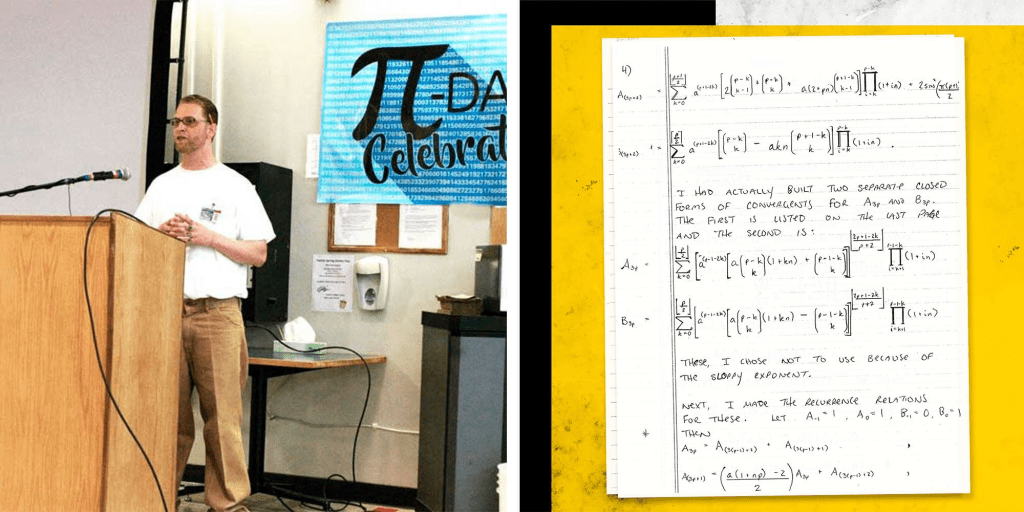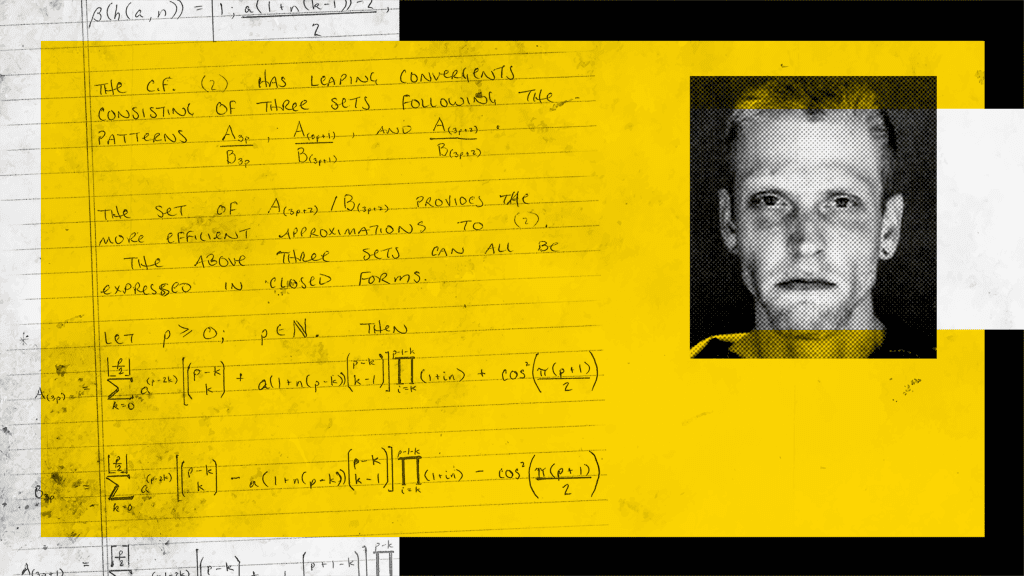Christopher Havens once lived a life defined by chaos. Convicted of murder in 2011, he was sentenced to 25 years in a Washington state prison. At first, his life inside followed a dark and familiar pattern. He was involved in gang activity, picked fights, and showed little hope of change. But then something unexpected happened something that would change not only his life but also touch the lives of many others.
In the quiet hours of his prison cell, Havens discovered a passion that would lead him down an extraordinary path. That passion was mathematics.

A Self-Taught Scholar Behind Bars
It began with curiosity and a desire to change. With no formal education beyond high school and limited access to resources, Havens requested math textbooks. When his requests were denied, he convinced prison authorities to allow him to receive used books by mail.

Once he got the books, he began studying algebra, calculus, and number theory on his own. The discipline required for learning math became a foundation for rebuilding his identity. As he spent hours each day working through problems and discovering patterns, he developed a genuine love for mathematical thought.
The breakthrough came when he reached out to the mathematical community writing a letter from prison that eventually reached a professor in Italy. That professor recognized Havens’ talent and began a correspondence that would lead to something unheard of: a prison inmate co-authoring a peer-reviewed math research paper.
Video:
From Meth to Math
From a Prison Cell to the Pages of Academic Journals
In 2020, Christopher Havens published his first mathematical research paper in a respected journal. The paper dealt with continued fractions, a complex area of number theory. His co-authors, professional mathematicians from Europe, were amazed by the quality and depth of his work.
What made the accomplishment even more astonishing was the fact that he had no access to the internet or a research library. His tools were pencils, paper, and mailed letters. Yet his work held up to the rigorous standards of academic review.
This rare achievement didn’t go unnoticed. His story began to circulate, not just among scholars, but among people hungry for inspiration and proof that redemption is real.

Creating the Prison Mathematics Project
After experiencing firsthand how education transformed his life, Havens wanted to share that opportunity with others. He founded the Prison Mathematics Project (PMP), a nonprofit organization dedicated to helping incarcerated individuals find purpose through mathematics.
Video:
An Infinite Debt – with Christopher Havens (Prisoner #349034) – Numberphile Podcast
The project connects volunteers from the global mathematics community with incarcerated students across the United States. Participants receive mentorship, encouragement, and math challenges that stimulate their minds and build their confidence.
The goal is not just to teach math but to open doors intellectual, emotional, and eventually, societal. For many inmates, this is the first time they feel seen for their potential instead of their past.
More Than Redemption A New Definition of Genius
Christopher Havens’ story is not about a lucky break. It is about what happens when raw determination meets the right support. He is not a genius in the traditional sense. He did not attend elite schools or train under world-famous professors. Instead, he built his own classroom behind bars, driven by the belief that he could be more than his worst mistake.

His journey challenges the way we think about talent, education, and rehabilitation. It shows that prison can be more than punishment it can be a place for growth, reflection, and even academic excellence.
Inspiring the Next Chapter
Now, Havens spends his time mentoring others, expanding the reach of the Prison Mathematics Project, and continuing his own research. His goal is to show the world that even in the darkest places, light can emerge.
He believes every person has the capacity for change if given the right tools and encouragement. Math, for him, was not just a subject it was a way out, a new identity, and a method for giving back.
His transformation proves that potential is everywhere. Sometimes, it just takes someone to believe it’s there.

Conclusion
Christopher Havens turned a prison sentence into a platform for discovery and service. His journey from convicted murderer to published mathematician is one of the most unlikely and inspiring stories of redemption in recent memory.
Through his work with the Prison Mathematics Project, he’s helping others do the same proving that no matter where you start, a new future is always within reach.


